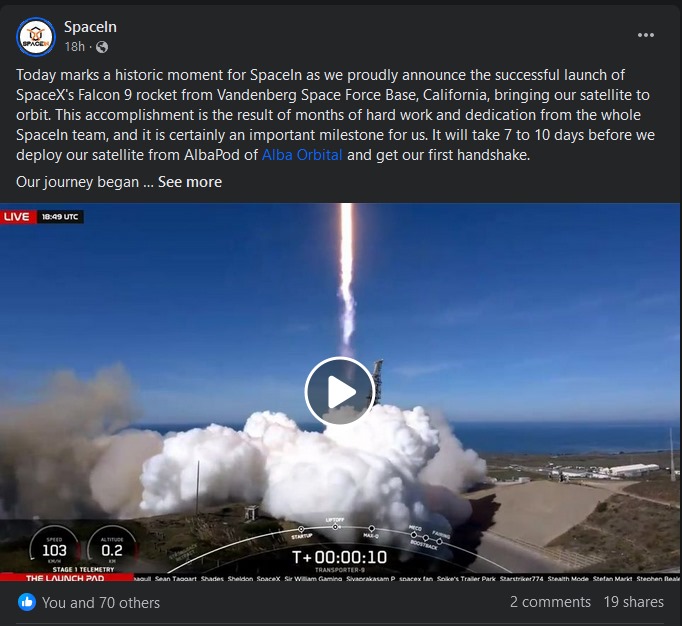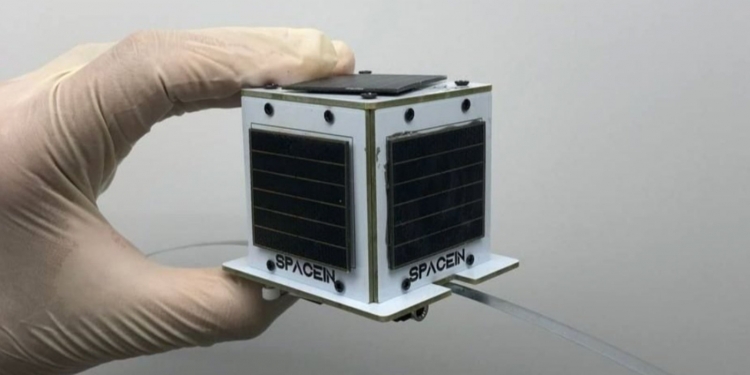Over the weekend, an interesting launch happened at the Vandenberg Space Force Base in United States. Universiti Sains Malaysia (USM) and its spin-off company, SpaceIn Sdn Bhd, launched the country’s first pico satellite called the SpaceANT-D.
The launch was made using the Falcon 9 rocket owned by Space X on board the Alba Orbital deployer. It will be released into orbit in the next 7 to 19 days and transmit the first signals to an earthbound station.
The pico satellite was made using the PocketQube standard which was developed to help universities perform space science and exploration. PocketQube satellites are meant for use in a constellation of tiny satellites in low earth orbit.
The 5cm-wide cube satellite weighing 250g was a joint venture between USM, SpaceIn, and the Malaysian Amateur Radio Transmitters’ Society. It will be used to demonstrate storing and transmitting data for IoT applications, according to USM.

SpaceIn CEO Dr Norilmi Amilia Ismail said that with the new format, there will be cost reductions in use of small satellites and will offer better opportunities for everyone to use space technologies to solve problems in various industrial and daily scenarios.
“SpaceIn is focusing on the agricultural, forestry as well as oil and gas industries as potential areas where SpaceANT-D can be used.”
USM and SpaceIn developed the satellite via a grant from an accelerator programme by TERAJU as well as funds from CRADLE for the development of a satellite data centre at USM.
[SOURCE]








